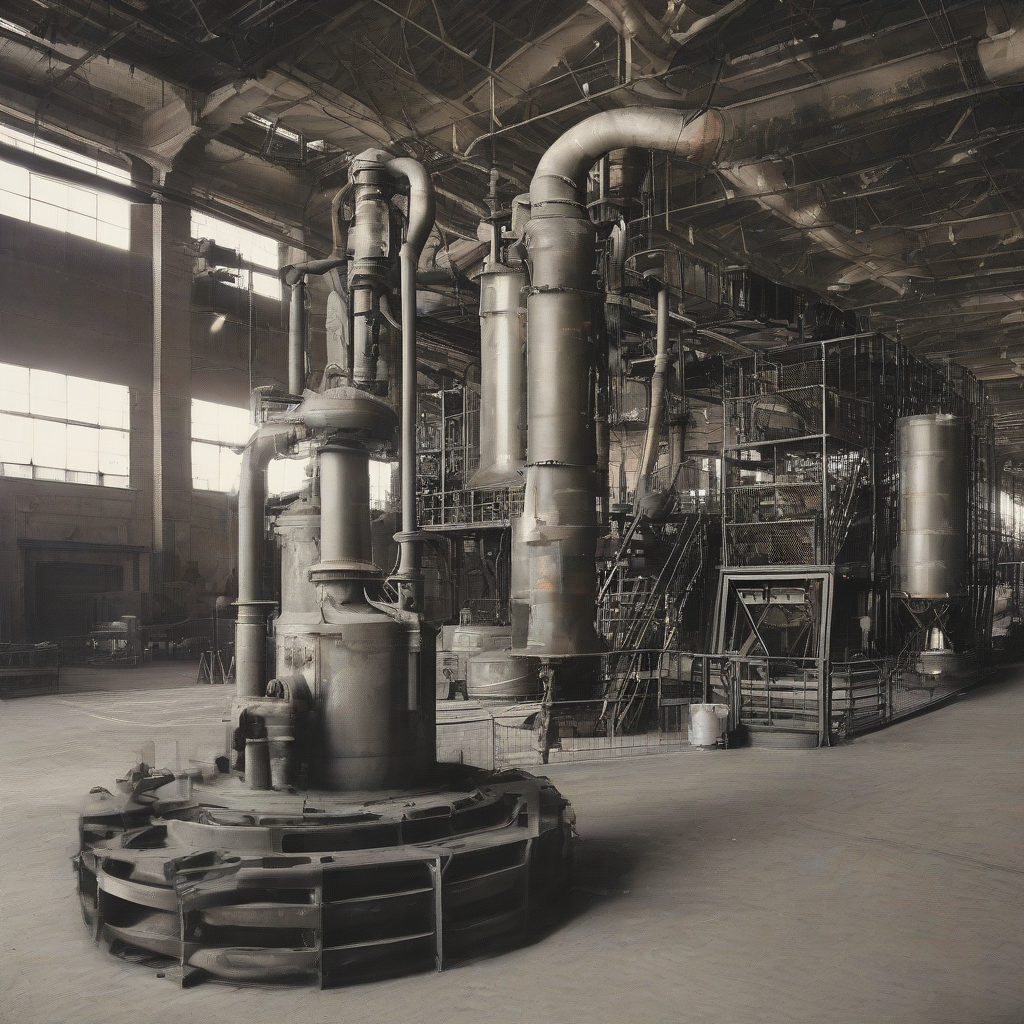Fort Worth’s Industrial Might: A Deep Dive into its Powerhouse Economy
Fort Worth, Texas, long recognized for its rich history and cultural attractions, boasts a robust and diverse industrial sector that significantly contributes to its economic vitality. This industrial powerhouse is fueled by a strategic geographical location, a skilled workforce, and a supportive business environment. This exploration delves into the key components of Fort Worth’s industrial strength, examining the major industries, their contributions, challenges, and future prospects.
The Pillars of Fort Worth’s Industrial Economy
Fort Worth’s industrial landscape isn’t monolithic; it’s a complex tapestry woven from several key industries. These pillars of its economic strength are:
- Aviation and Aerospace: Fort Worth’s legacy in aviation is deeply rooted, particularly with the presence of Lockheed Martin’s Fort Worth facility, a major employer and a critical player in the global defense industry. The facility’s contributions extend beyond manufacturing; it also encompasses research and development, contributing to cutting-edge advancements in aerospace technology. This sector supports a network of smaller businesses providing specialized services and components, creating a robust aerospace ecosystem.
- Energy: Texas’s energy dominance is reflected strongly in Fort Worth. The city serves as a hub for energy exploration, production, and distribution. Oil and gas remain significant contributors, though the industry is undergoing a transformation with increasing focus on renewable energy sources. The presence of energy companies and related support services creates a substantial employment base and drives economic growth.
- Logistics and Transportation: Fort Worth’s strategic location, positioned at the crossroads of major transportation networks, makes it a logistics and distribution powerhouse. The city benefits from its proximity to significant interstate highways, rail lines, and airfreight capabilities. This infrastructure attracts numerous logistics companies, warehousing facilities, and distribution centers, supporting the movement of goods across the nation and internationally.
- Manufacturing: Beyond aerospace, Fort Worth has a diversified manufacturing sector encompassing a range of products. From food processing to advanced materials manufacturing, this sector provides a significant number of jobs and contributes to the city’s overall economic output. The presence of both large-scale manufacturers and smaller, specialized businesses demonstrates the sector’s breadth and depth.
- Healthcare: Fort Worth’s healthcare sector is growing rapidly, driven by an expanding population and the presence of major healthcare providers and research institutions. This sector creates numerous high-skilled jobs, from medical professionals to research scientists, and contributes significantly to the city’s economic and social fabric.
The Workforce: A Key Driver of Industrial Success
Fort Worth’s industrial success is intrinsically linked to its workforce. The city has a long-standing tradition of skilled labor, particularly in areas like manufacturing and aerospace. Educational institutions, including community colleges and universities, play a crucial role in training and developing the talent pipeline, ensuring a continuous supply of skilled workers for the industries that drive the economy. This commitment to workforce development is essential for maintaining Fort Worth’s competitive edge in the global marketplace.
Infrastructure and Support Systems: Fostering Growth
The city’s robust infrastructure plays a critical supporting role in its industrial success. This includes not only the transportation networks mentioned earlier but also reliable utilities, access to technology, and a well-developed business-friendly environment. The city government actively works to attract and retain businesses through initiatives such as tax incentives, streamlined permitting processes, and partnerships with educational institutions. This proactive approach fosters a climate of growth and innovation.
Challenges Facing Fort Worth’s Industrial Sector
Despite its strengths, Fort Worth’s industrial sector faces several challenges:
- Competition: The globalized economy means Fort Worth competes with other cities and regions for investment and talent. Maintaining a competitive advantage requires continuous innovation, investment in infrastructure, and a focus on workforce development.
- Economic Fluctuations: The industrial sector is susceptible to fluctuations in global markets and economic downturns. Diversification of the industrial base helps to mitigate risk, but economic volatility remains a challenge.
- Sustainability Concerns: Growing concerns about environmental sustainability are placing pressure on industries to adopt more eco-friendly practices. Fort Worth’s industrial sector must adapt to meet these challenges and invest in cleaner technologies.
- Workforce Development: While Fort Worth boasts a skilled workforce, maintaining a continuous supply of skilled labor requires ongoing investment in education and training programs. Addressing skills gaps and attracting talent remains a key challenge.
- Infrastructure Upgrades: Continued investment in infrastructure is crucial for maintaining Fort Worth’s competitiveness. This requires ongoing planning and investment in transportation, utilities, and other essential infrastructure elements.
The Future of Fort Worth’s Industrial Economy
Fort Worth’s industrial future looks promising, but success will depend on proactive strategies and adaptability. The city must continue to invest in:
- Diversification: Expanding into new industrial sectors and technologies will reduce reliance on any single industry and enhance resilience to economic fluctuations.
- Innovation and Technology: Investing in research and development, fostering innovation hubs, and attracting technology-based businesses will ensure Fort Worth remains at the forefront of industrial advancements.
- Sustainability Initiatives: Adopting environmentally friendly practices and investing in sustainable technologies will improve the environmental footprint and attract businesses committed to sustainability.
- Workforce Development: Continued investment in education and training programs will ensure a steady supply of skilled workers for future industrial needs.
- Infrastructure Improvements: Strategic infrastructure investments, including transportation upgrades and improvements to utility systems, will support future growth and attract new businesses.
- Public-Private Partnerships: Collaborations between the city government, private sector, and educational institutions will be essential to drive innovation, address challenges, and achieve shared goals.
By embracing these strategic priorities, Fort Worth can solidify its position as a leading industrial powerhouse, creating a vibrant and prosperous future for its citizens.
In conclusion, Fort Worth’s industrial strength is a result of a complex interplay of factors, from its geographical location and robust infrastructure to its skilled workforce and supportive business environment. While challenges remain, the city’s proactive approach, focus on innovation, and commitment to workforce development position it well for continued growth and prosperity in the years to come.
